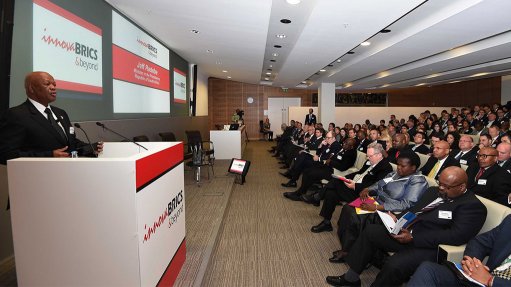
Minister in the Presidency Jeff Radebe says the Brazil, Russia, India, China and South Africa (Brics) collaboration has become one of the most recognised groupings in the global economy, constituting in excess of a quarter of global gross domestic product, accounting for 43% of the world’s population and holding 40% of global currency reserves, estimated at around $4.4-trillion.
He told the InnovaBrics Forum, in London, on Monday, that the platform would promote closer cooperation between member countries to support growth, development and poverty reduction objectives, building on each State’s respective economic strengths.
“Our economic cooperation agenda now extends beyond trade and investment issues to include customs cooperation, trade facilitation, industrial and innovation policy, intellectual property, e-commerce and small business development,” he noted.
Radebe added that Brics countries accorded high priority to innovation as a key driver for economic growth.
“Innovation is a powerful engine for development and for addressing social and global challenges. I can also affirm that innovation is centrally located in South Africa’s long-term economic growth strategy, which includes a focus on the pharmaceutical industry, indigenous knowledge and rich biodiversity, as well as deploying satellites that provide a range of scientific, security and specialised services for government, the public and private sector,” he outlined.
The Minister noted that the country’s National Development Plan aimed to unlock the institutional, human and structural impediments to higher growth in the country.
“It offers a framework for faster growth and socioeconomic transformation and the Brics countries are an important part of this strategy,” he commented.
Radebe further indicated that South Africa remained committed to developing infrastructure that connected it to the rest of the continent, as part of the African Union’s Presidential Infrastructure Championing Initiative.